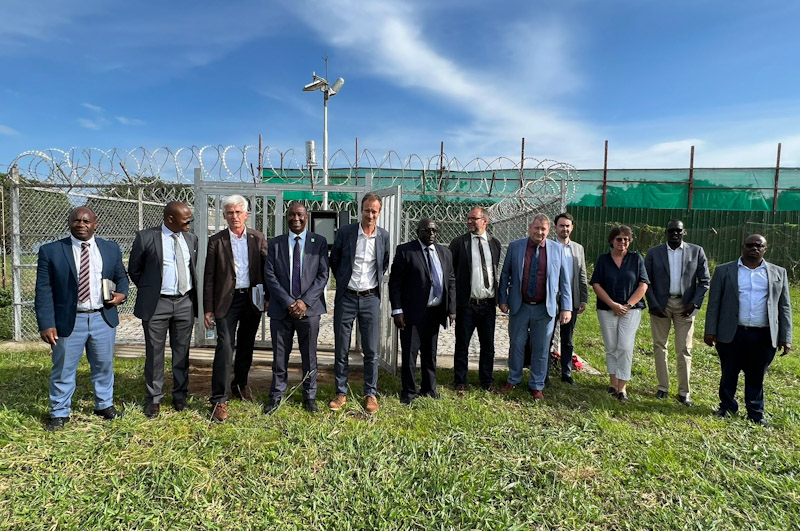At least 13 water level monitoring stations have been installed at different points on major rivers across Uganda, with the hope that they help experts generate evidence-based information critical for guiding decisions on planning and operations of major water-dependent facilities.
The 13 stations – out of the 15 earmarked for Uganda, are part of what experts call the Hydrological Monitoring Network or Hydromet – a network of data collection equipment that monitors water level in rivers.
More than 60 such stations have been built across the 10 member countries of the Nile Basin Initiative (NBI) thanks to a 5 million Euro financial assistance package from the Germany government and the European Union.
Uganda’s membership in the Nile Basin Initiative (NBI) and its geographical location ensured that it received the most number of such equipment compared to the rest of the other member countries of the in the basin
Mr. Jackson Twinomujuni, the Commissioner for International and Transboundary Water Affairs in the Ministry of Water and Environment explained that the installation of the network of stations will aid decision making on critical developments such as hydropower dams, irrigation schemes as well as flood management.
“Uganda lies entirely within the Nile Basin. At the same time, Uganda is affected by rainfall and waters that come from other countries. The waters come in the form of floods that affect the country, while also the absence of rainfall in the form of droughts adversely affects the country” said Twinomujuni.
Twinomujuni adds: “Now we have a lot of developments that we have made on the Nile river. The hydropower dams such as Bujagali and Karuma are the most known. But all of them depend on waters of the Nile, which are not necessarily generated in Uganda. We know very well that about 70 percent of the water that we use, comes from other countries. So the Hydromet helps us to know how much water we’re getting and how much we have.”
Commissioner Twinomujuni explained that the current Hydromet system that Uganda depends on to collect information on water levels in rivers and lakes, had largely broken down and needed replacement and upgrading.
Because we know that water can spark development but also can spark conflict, the hydromet will help us to resolve some of the issues surrounding water resources management in the country but also at the regional nile Basin.
Eng. Sowedi Ssewagudde, from the Department of International and Transboundary Water Affairs added that the hydromet would greatly help in optimising the generation of hydro power from the dams already built on the Nile river.
He added that the hydromet is a networked system and helps different countries to access information from other countries.
Access to hydrological information by member countries would be important in helping to avert conflict between countries.
For example, in 2021 at the height of flooding in East Africa, five Kenyan nationals sued Uganda for allegedly failing to control floods which they claimed led to the destruction of property around Kisumu.
Now experts say such a system would help Kenya and other countries know early enough about water levels in Uganda and how they might impact them, or engage Ugandan authorities on how to manage them in a win-win way.








